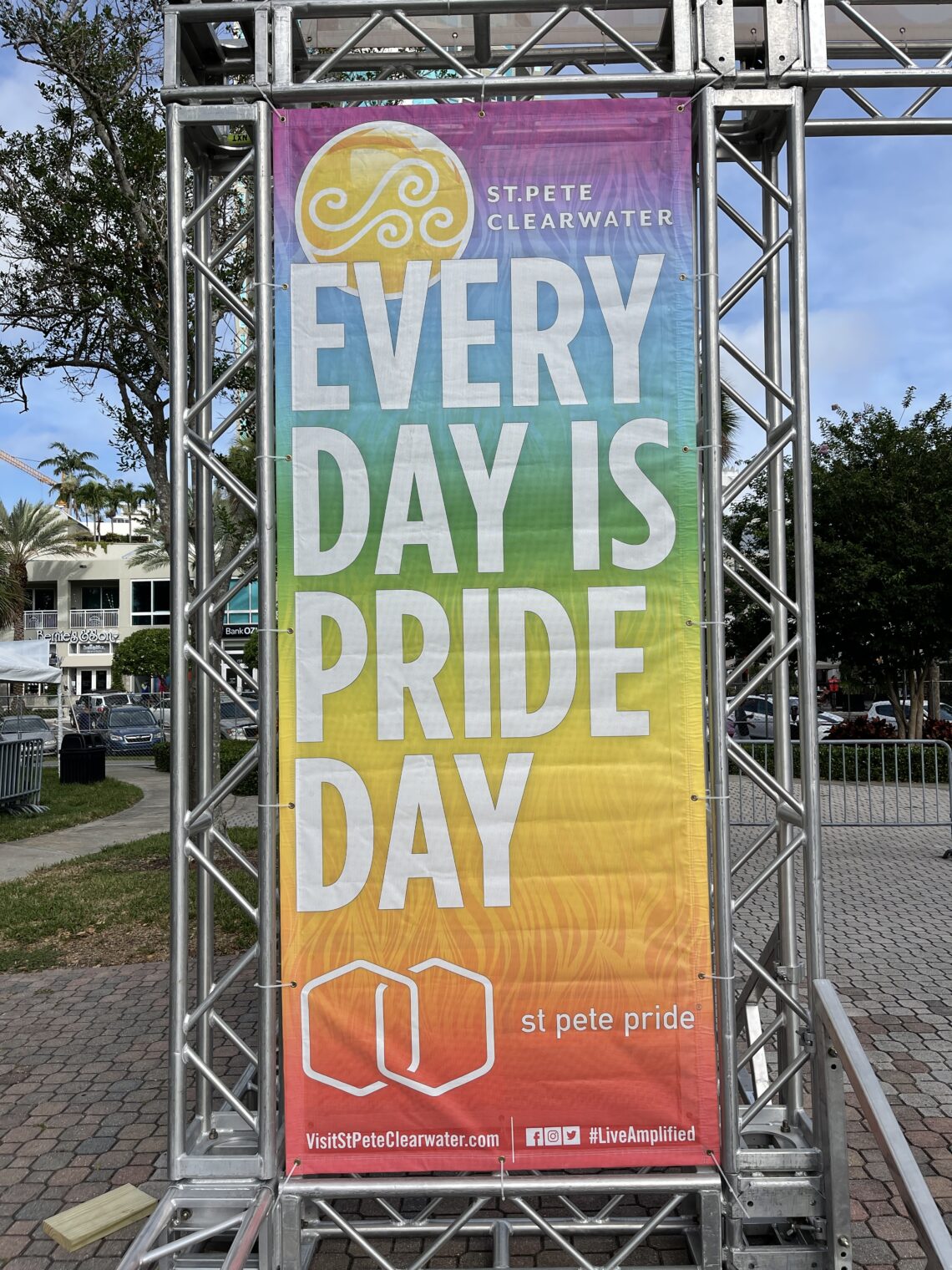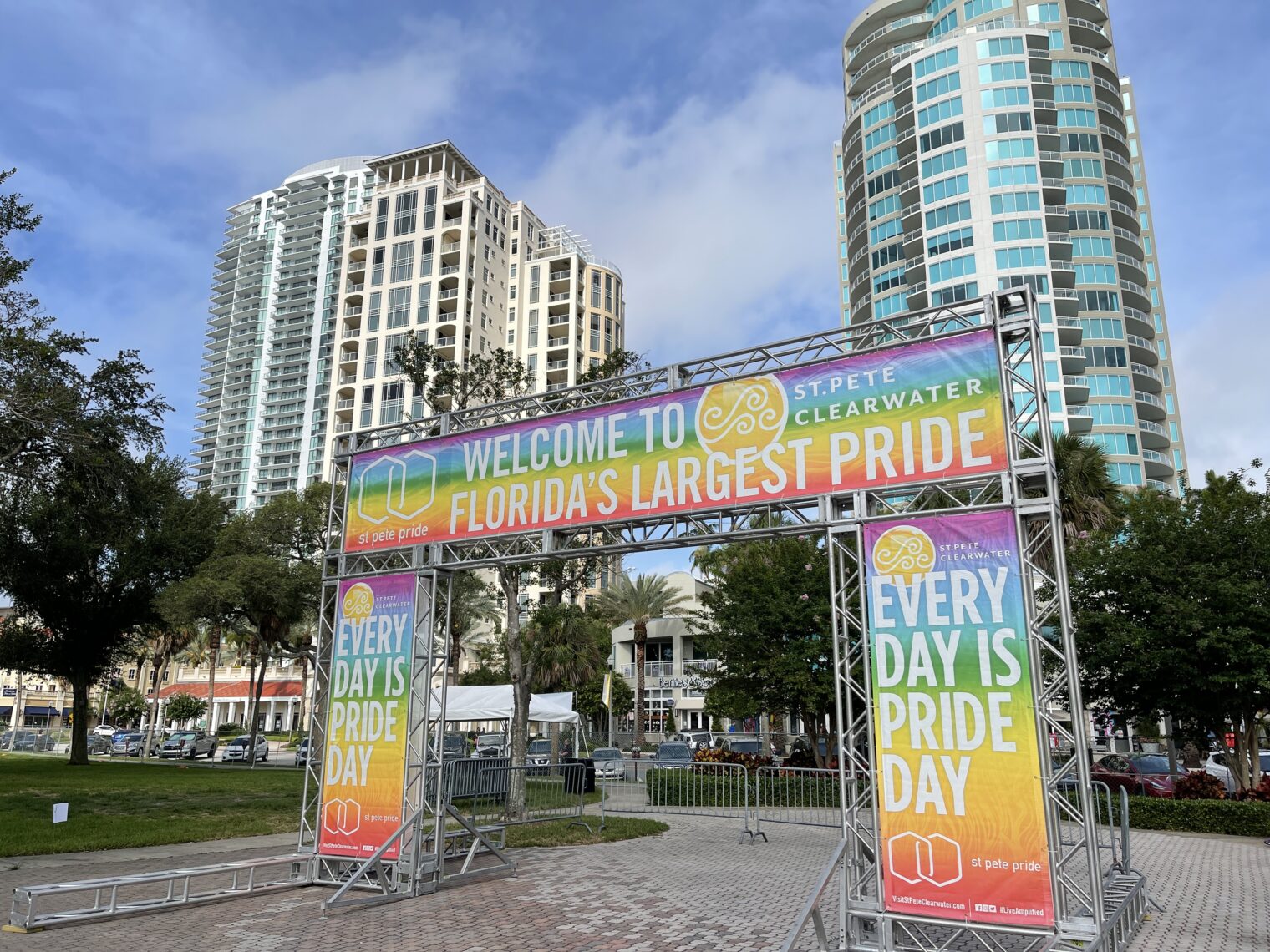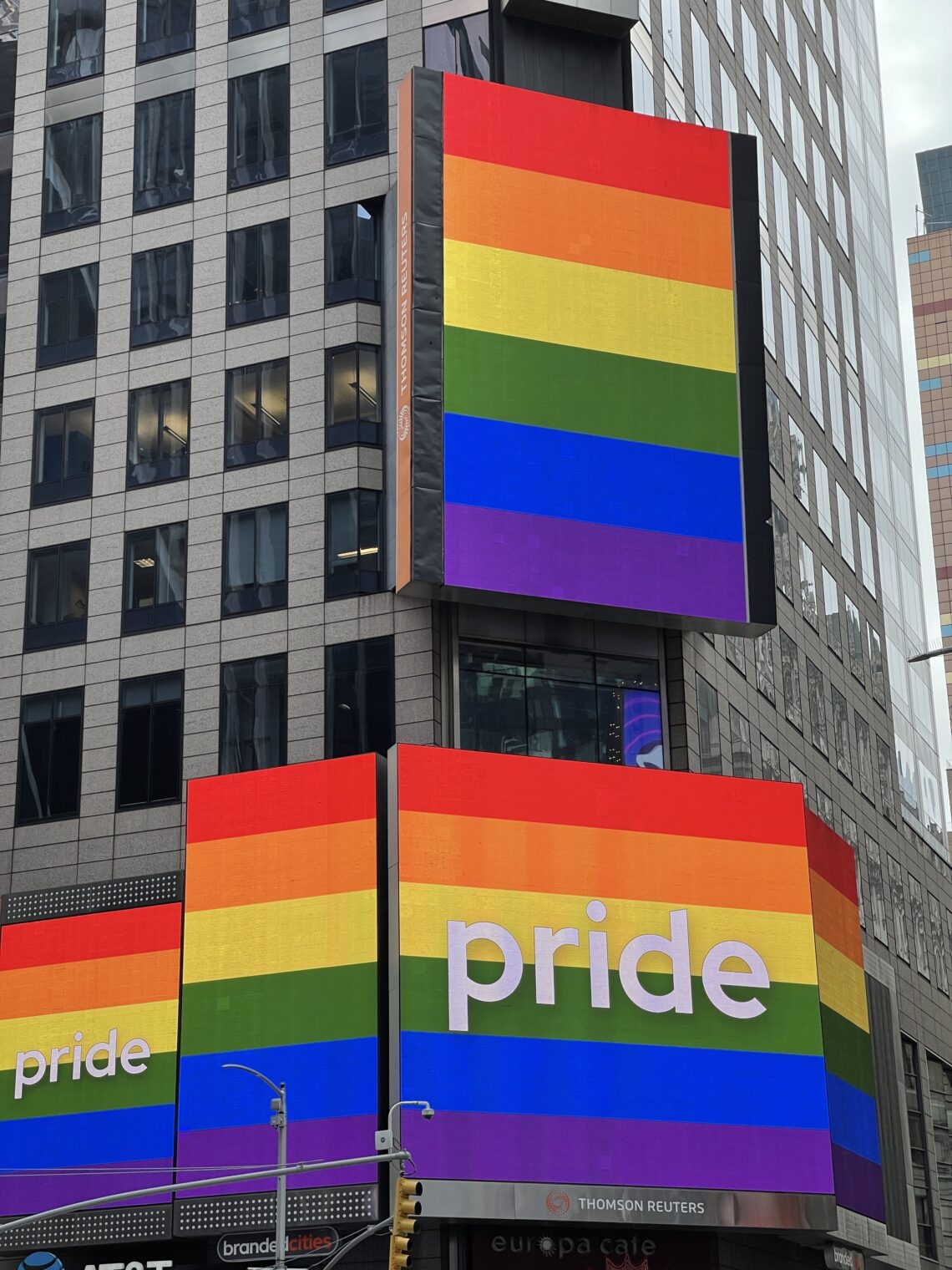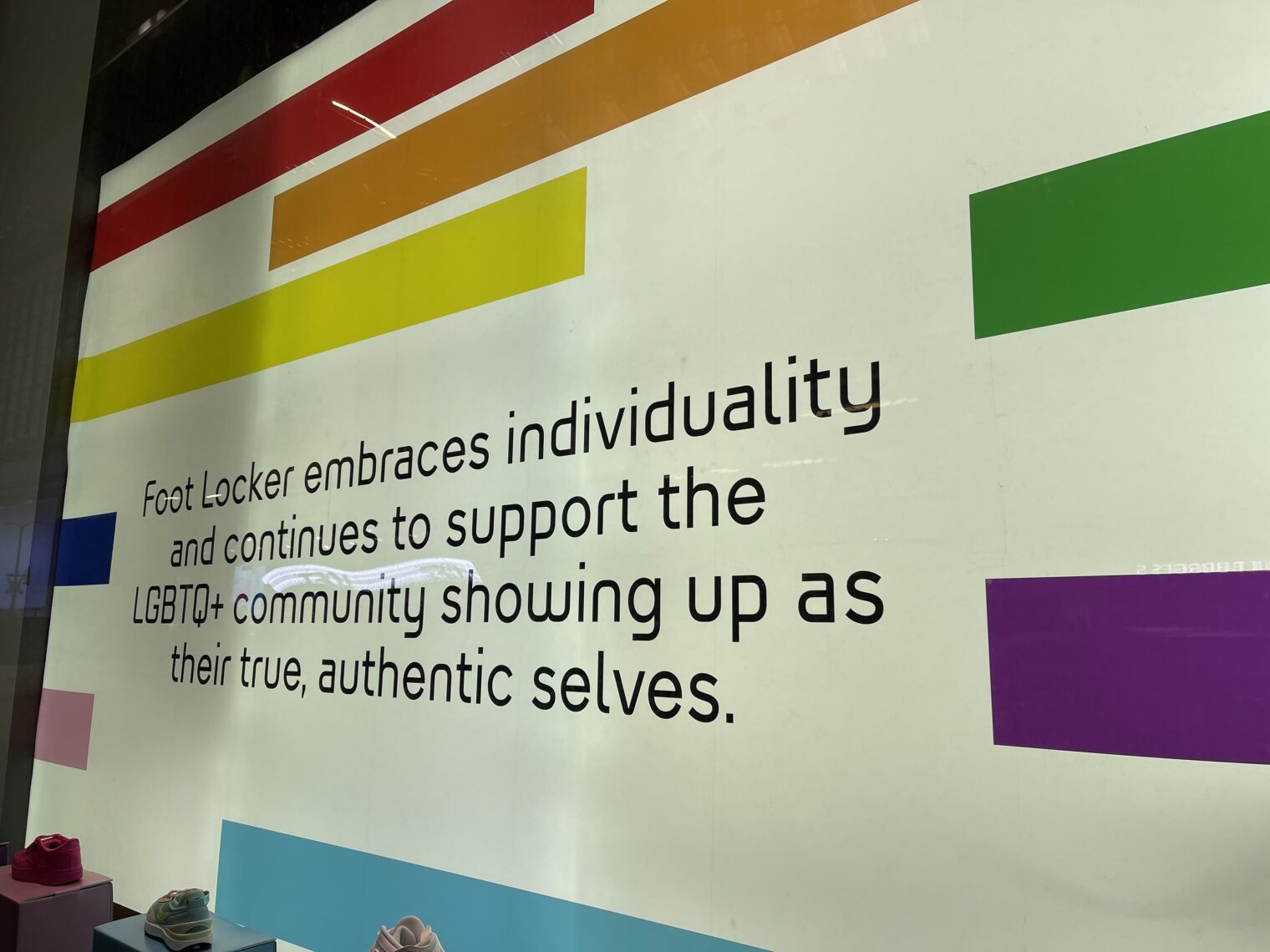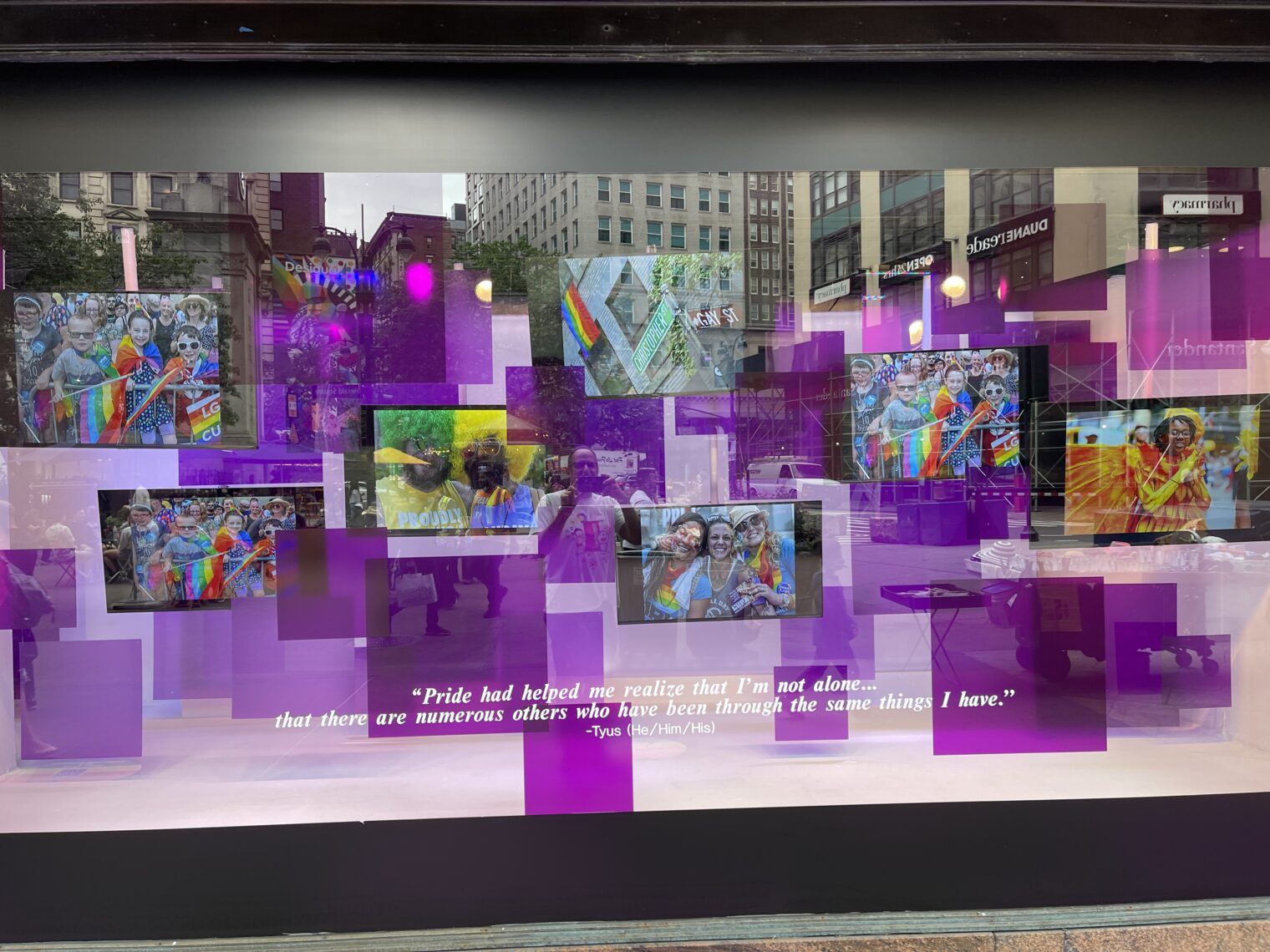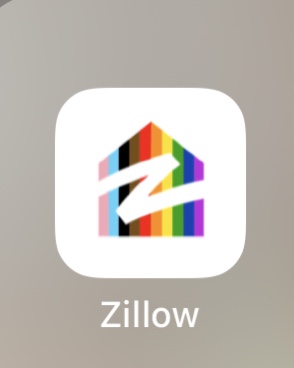Happy Pride Month again! Don’t forget that
Suppose that we hear about a financially secure 90-year-old white American having sex with a 31-year-old “Brown” immigrant? That’s an unequal power dynamic, right? And we would condemn this relationship, I’m sure. Former Miss Ukraine Oleksandra Nikolayenko isn’t especially brown, but she’s 40 years old and we don’t see a lot of media praise regarding her marriage to Phil Ruffin (86-year-old billionaire).
What if Mx. Nikolayenko said “I identify as a man” and Phil Ruffin said “I am gay”? Then we would have a love story suitable for publication… “‘I Found Love At 90 With A 31-Year-Old—After Finally Coming Out'” (Newsweek):
When he arrived, John was dressed in black with his black mask. We actually both had our masks on right up until the salad course was brought out. That was the first time we actually saw each other. We got talking and soon found that we had lots in common. Neither one of us smokes or drinks and neither of us uses foul language. We talked about shows that we liked and things we both enjoy around town; we both really like Asian food.
They had as much in common, in other words, as any two people selected at random from the Chinese population of 1.4 billion.
Young John is not prosperous:
He had three roommates so I didn’t visit him as it would have been less comfortable for us.
John is an immigrant:
John is originally from Mexico, where there are plenty of tarantulas, but he’s afraid of them.
Their friends are implicitly against polyamory:
Most of our friends now are also gay, and a number of them are in younger/older unions or marriages. It really doesn’t come up, nobody says anything about it because we’re two people who are happy together. That’s all our friends care about. Whenever it comes up in Facebook comments—and it does come up—I say that age is just a number. Of course it is an important number, but it is just a number.
Just a number? Let’s compare to Jeffrey Epstein, who died at age 66. It was disgusting when Epstein was 61 and there was a possibility of sex with a 19-year-old. See “‘UNCLE’ JEFF’S PLOT Jeffrey Epstein hatched plot to marry ex girlfriend’s 19-year-old daughter to give her £40m inheritance”:
JEFFREY Epstein told pals he wanted to marry the teen daughter of his beauty queen ex who called him “Uncle Jeff”, it has been claimed.
Celina Dubin, now aged 24, is the daughter of doctor and former Miss Sweden Eva Andersson Dubin – who the paedo dated in the 1980s.
Epstein reportedly enjoyed a close relationship with Eva and her husband Glenn Dubin – who she married in 1994 – a billionaire hedge-fund manager from New York City.
And in 2014, the sex offender, then aged 61, told friends that if he was ever to marry he would choose then-19-year-old Celina, reports Business Insider.
He said that he wanted the teenager to inherit his fortune and that marriage would help her avoid inheritance taxes, the report claims.
That same year, Epstein – who died in prison in August while facing child sex trafficking charges – named Celina as a beneficiary to his $500m fortune.
A source familiar with the millionaire’s estate told Business Insider that the young girl would have inherited $50m – however the paedo banker removed her from his will in 2015 for unknown reasons.
The Dubins reportedly spent holidays with Epstein even after his conviction in 2008 for having sex with a minor.
What if Celina Dubin had said “My pronouns are he/him/his” and Jeffrey Epstein had said “I am gay and find all three of the guys pictured below attractive, including Mr. Eva Dubin on the left and Mr. Celina Dubin on the right of the photo”? Now the romance between Mr. Epstein and Mr. Celina Dubin would be heartwarming instead of “gross”?
Full post, including comments 




